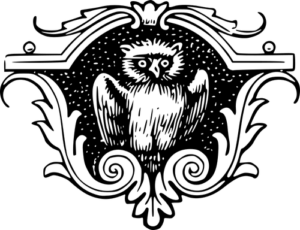![]()
This is a general guide for approaching this site as an academic (professional or aspirant). If you’re unsure why you should study the occult as an academic, the Skeptics page can help answer that for you.
Helpful tip: Academics below the graduate level, or ones unfamiliar with the occult, may find the General Audience guide as equally helpful as this one.
One of the goals of this site is to facilitate academic work within occult studies in a cross-cultural and interdisciplinary mindset. While I strive to provide a solid foundation of knowledge that remains objective and accessible, I hope that other academics will be open to providing their own viewpoints and research into the material I’ve spotlighted in addition to my own future work. With this collaborative future in mind, feel free to contact me for help, advice, questions, research, opinions, or just to say hi. I myself have struggled with communicating with other academics and my personal goal is to foster my own skills in academic collaboration (and inspire others to as well).
While academic interest in occult studies is by no means absent, it certainly has room for growth. There are many texts, manuscripts, and ideas yet to be explored. Even well-treaded paths can benefit from new perspectives so I encourage anyone to take up whatever topic speaks to them without reservation. The best scholarship comes from a place of passion.
While I approach the occult from a wide variety of perspectives, higher academics especially lends itself to narrow specialties within defined disciplines. As such, below are topics especially applicable to specific areas of study:
Psychology:
Gnosticism
Hermeticism
Neoplatonism
Outside Resources, Libraries, and Research Guides:
The New York Public Library Research Guide for Occult Sciences and Parapsychology
![]()
Academics will find the following pages in the DOL particularly relevant:
While providing general information and/or mini essays on each topic, you will notice that I point out gaps in current knowledge or points of interest that could use further exploration. From unexamined manuscripts to links in history yet to be forged, I’m happy to highlight where my knowledge ends and opportunity awaits.
Initially, all the content included here will be my own (with proper citations for referenced material). As the site grows, I intend to add functionalities, contributors, and collaborators. This means that anyone wishing to submit content is free to contact me. I reserve the right to curate information on the site since its purpose is to present a balanced and intellectual view on occult studies. If I find that your work may not be the best fit, it is in no way a reflection of your talent, knowledge, or skill as an academic.
As my interests are broad and my scope limited as a single human being with limited time on this earth, I will note where particular gaps in my expertise could use the help of contributors. Scholars of art, philosophy, history, and psychology would be especially welcome.
Contact for the DOL: digitaloccultlibrary@gmail.com


